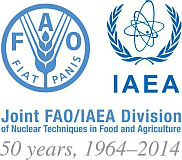Ensuring the integrity of the food supply is of utmost importance in terms of food security, safety and quality, consumer protection and international trade. To maintain and assure the safety and quality of food, control measures are essential throughout the food production and supply chain.
The need for methods to monitor and verify food safety and quality is evidenced by the ever growing list of food product recalls due to contamination with, for example, Salmonella, Escherichia coli and Listeria, and incidents such as melamine, antibiotic and dioxin contamination. Food fraud (e.g. the adulteration of beef products with horse meat) the introduction of new technologies with potential food safety implications (e.g. nanotechnology) and environmental factors (e.g. climate change) further highlight the need for continued refinement, development and innovation to improve food control measures.
The need for methods to monitor and verify food safety and quality is evidenced by the ever growing list of food product recalls due to contamination with, for example, Salmonella, Escherichia coli and Listeria, and incidents such as melamine, antibiotic and dioxin contamination. Food fraud (e.g. the adulteration of beef products with horse meat) the introduction of new technologies with potential food safety implications (e.g. nanotechnology) and environmental factors (e.g. climate change) further highlight the need for continued refinement, development and innovation to improve food control measures.
Effective techniques are necessary to help assess and manage risks and protect the consumer. These include food irradiation to treat food directly, as well as other nuclear and related technologies for tracing food products in order to verify their provenance, or to detect and control contaminants. Continued research and innovation facilitate on-going improvements in control strategies and the implementation of effective and efficient 'farm-to-fork' safety and quality assurance systems.
Program Structure
The opening plenary session will include welcoming addresses by representatives of the IAEA, cooperating organizations and other relevant organizations. The main sessions will continue with a combination of keynote presentations, submitted papers and panel discussions addressing the main themes and topics of the conference. The final plenary session on the last day of the conference will include discussion of the conclusions and recommendations of the symposium. There will also be poster sessions, and sufficient time will be dedicated to discussions and interactions with colleagues.

